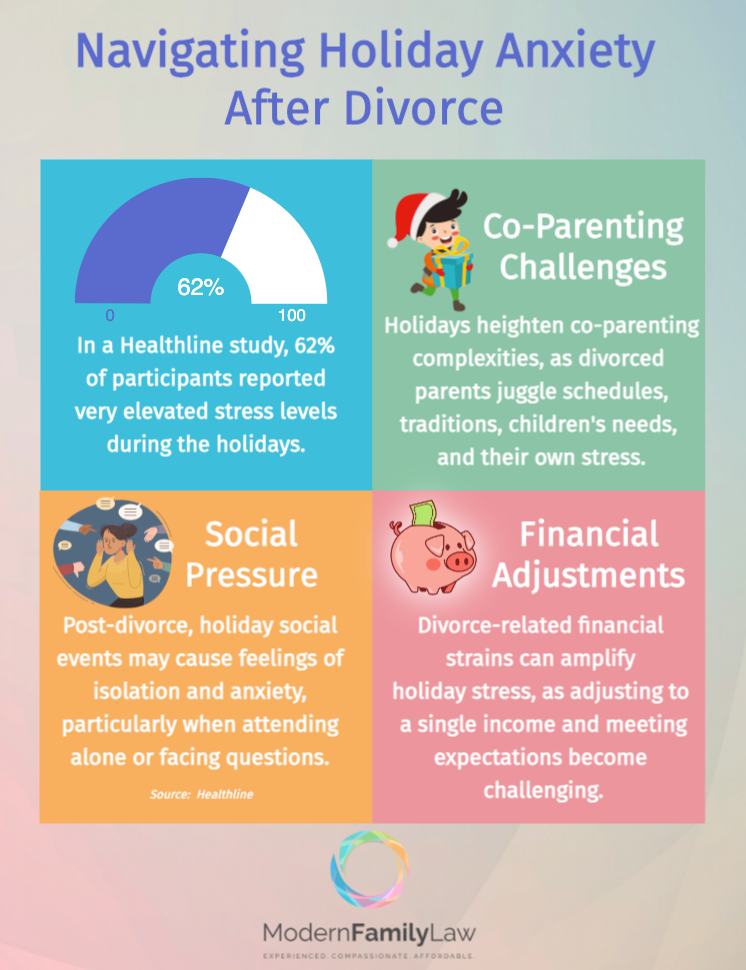The holiday season, traditionally a tapestry of joy and celebration, can present a vastly different landscape for those navigating it post-divorce. In this phase of life, the usual festivities are often interwoven with a complexity of emotions and a profound shift in personal dynamics. Heightened emotions and altered family structures create a backdrop where stress and nostalgia can easily overshadow the festive spirit. This is echoed in a Healthline study, which uncovered a significant trend: 62% of participants reported very elevated stress levels during the holiday period.
However, it’s important to recognize that within these challenges lies a silver lining—an opportunity for profound personal growth, emotional healing, and the rediscovery of joy in new and unexpected ways. The holiday season, in the wake of such a significant life change, can become a catalyst for positive transformation and an exploration of personal resilience and renewal.






